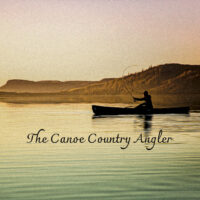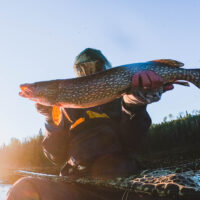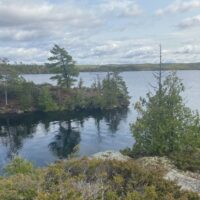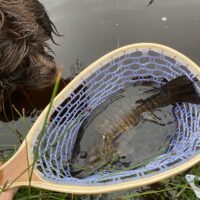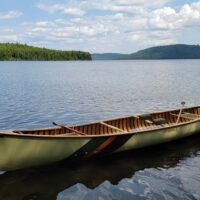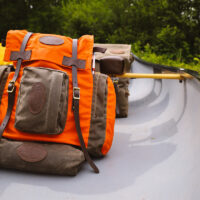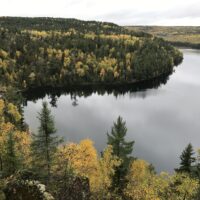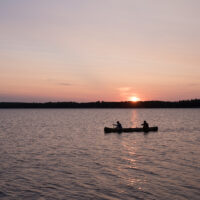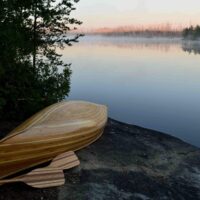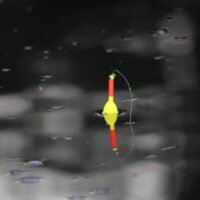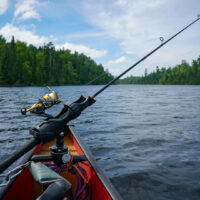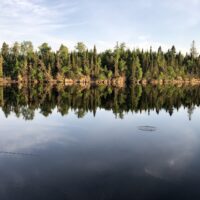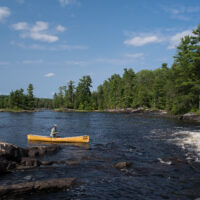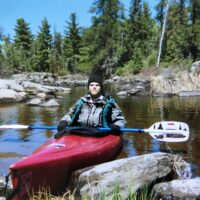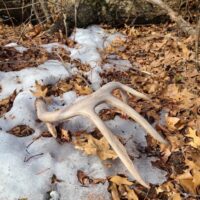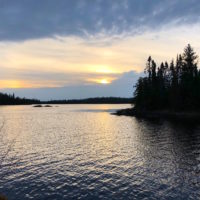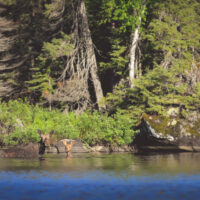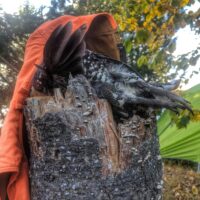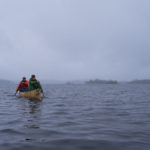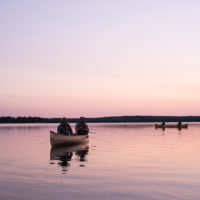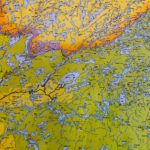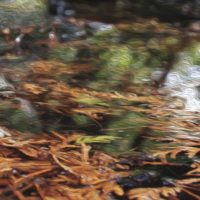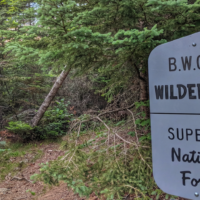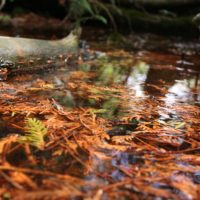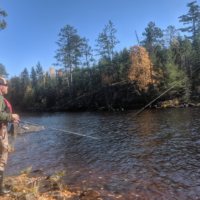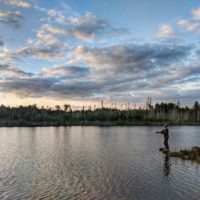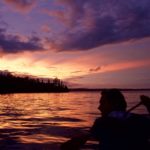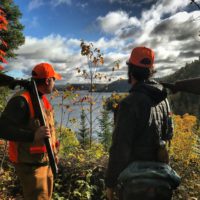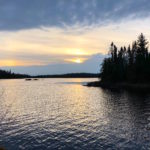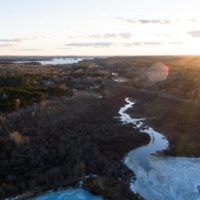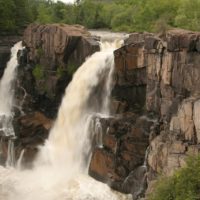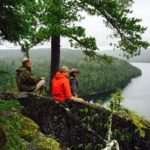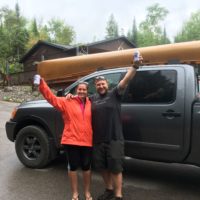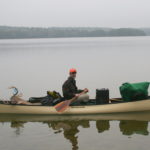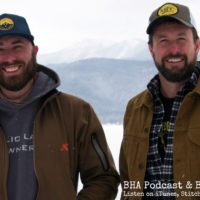MN DNR Approves Franconia Exploratory Boring Plan Near The BWCA
November 2, 2023 10:09 amwritten by SFBW staff
With a 20-year moratorium on mining federal land surrounding the Boundary Waters Canoe Area Wilderness still fresh on our minds after the decision was made early this year, several questions loom over recent developments on the mining front in Northeast Minnesota.
On September 22nd, 2023, Franconia Minerals LLC submitted an exploration plan to the Minnesota Department of Natural Resources for review. Now, as of October 30th, having reviewed the plan and taken stakeholder input into account, the Minnesota DNR has approved Franconia’s exploratory permits with some minor provisions. In light of the uncertainty surrounding any project associated with mining near the Boundary Waters, here is some basic information about Franconia Metals, exploratory boring, and Sportsmen for the Boundary Waters’ ongoing work to oppose a copper-nickel mine in the Rainy River watershed.
Who is Franconia Minerals LLC?
Franconia Minerals is a subsidiary company to Twin Metals Minnesota, the same company that has recently worked to permit a copper-nickel mine in the Duluth complex, specifically within the Rainy River watershed. Both Twin Metals and Franconia are owned by the Chilean-based mining company Antofagasta. Through these partnerships and mergers, any lands owned or leased by one of these companies fall under the same parent company. Currently, both Twin Metals and Franconia have leases on thousands of acres in and around the Rainy River watershed. These lands are not federal and, therefore, do not fall under the purview of the federal moratorium that Sportsmen for the Boundary Waters and a coalition of supporters worked to achieve over the last several years.
What is Franconia’s exploration plan?
Presently, the Minnesota DNR has approved up to six individual sites for exploratory boring in St. Louis County, spanning from five to six miles East of Babbitt, MN, in addition to two sites that do not fall within the DNR’s jurisdiction. Exploratory boring is a common practice conducted by mining companies to gain a more thorough understanding of the mineral deposits beneath the surface. While Minnesota legislation (Minn. R. 6125.0700, ¶ 26) stipulates that the state cannot outright deny the right for a lessee or owner to perform exploration that meets the requirements set in place, they can require adjustments by the lessee for natural resource management concerns. In the case of Franconia’s latest exploratory plan, the DNR requires special mitigations for two Minnesota threatened species that could be impacted.
According to the Minnesota DNR, the average size of a drill pad, the surface on which the actual drill is mounted, is 70’x70’ or 1/10 of an acre. The regulatory statutes for conducting exploratory boring in Minnesota can be found in Minnesota’s Administrative Rules Chapter 4727. Essentially, a 10-inch or less diameter core sample will be pulled from the earth at varying depths, often between 1,000-5,000 feet, and then transported to a facility where it can be core logged and studied by geologists. Drilling 1,000 feet often takes around two weeks, after which the site enters a reclamation phase, and the hole is sealed. According to Dean DeBeltz, Twin Metals Vice President of External Relations and Project Relations, around 650 of these drill holes have been safely created in the area by Twin Metals.

Three of the planned drill pads on Birch Lake’s shoreline (as seen above) have drawn the most concern, as the lake flows directly into the Boundary Waters Canoe Area via the South Kawishiwi River. Despite several state mandates, the resurgence of Twin Metals after the federal moratorium has raised alarm in the conservation community. Twin Metals has not made it clear what they intend to do with the information gained from exploratory boring, except that the proposed drilling is solely exploratory and that they are continuously trying to gain additional knowledge and data of what Minnesota’s mineral resources are as the demand for several metals grows.
Sportsmen for the Boundary Waters
Sportsmen for the Boundary Waters remains steadfast in our opposition to copper-nickel mining in the Rainy River Watershed and will continue to track any new developments as they arise. Although Franconia has the legal right to explore on their leased land and exploratory boring is a common practice used throughout the mining industry, the prospect of an environmentally dangerous mine in the watershed is unacceptable. After nearly a decade of working on every front to gain federal protections for the Boundary Waters, the need for state protections is more important now than ever.
As always, we are committed to protecting the integrity of the Boundary Waters Canoe Area Wilderness and its watersheds for huntable and fishable populations of fish and wildlife, now and forever, through education and advocacy. As we look to the future of Boundary Waters conservation, the importance of making sure sportsmen and sportswomen have a seat at the table will always remain at the forefront of our work.


